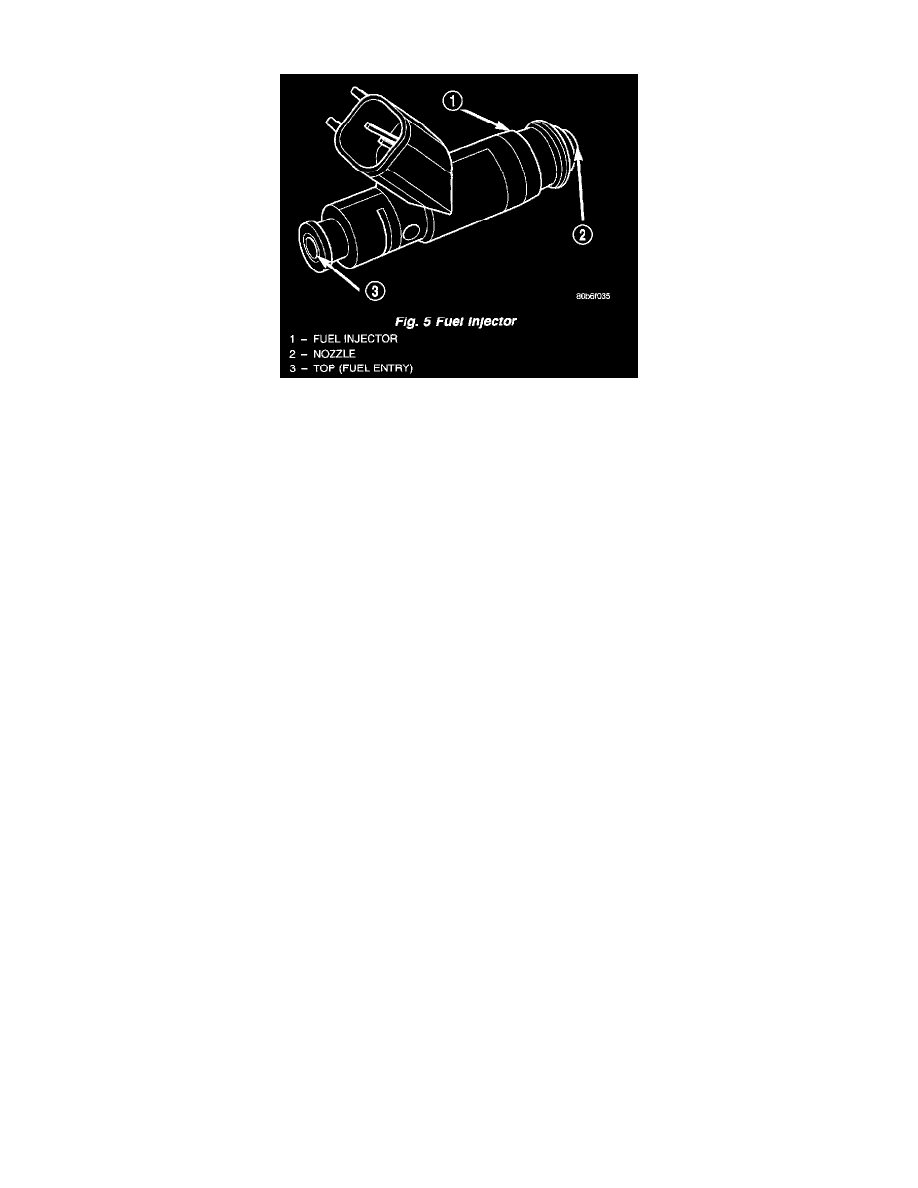RAM 3500 Truck 2WD V10-8.0L VIN W HDC (2000)

Fuel Injector: Description and Operation
Fig. 5 Fuel Injector
FUEL INJECTORS
A separate fuel injector (Fig. 5) is used for each individual cylinder.
The fuel injectors are electrical solenoids. The injector contains a pintle that closes off an orifice at the nozzle end. When electric current is
supplied to the injector, the armature and needle move a short distance against a spring, allowing fuel to flow out the orifice. Because the fuel is
under high pressure, a fine spray is developed in the shape of a pencil stream. The spraying action atomizes the fuel, adding it to the air entering
the combustion chamber.
An individual fuel injector is used for each individual cylinder. The top (fuel entry) end of the injector is attached into an opening on the fuel rail.
The nozzle (outlet) ends of the injectors are positioned into openings in the intake manifold just above the intake valve ports of the cylinder head.
The engine wiring harness connector for each fuel injector is equipped with an attached numerical tag (INJ 1, INJ 2 etc.). This is used to identify
each fuel injector.
The injectors are energized individually in a sequential order by the Powertrain Control Module (PCM). The PCM will adjust injector pulse width
by switching the ground path to each individual injector ON and OFF. Injector pulse width is the period of time that the injector is energized. The
PCM will adjust injector pulse width based on various inputs it receives.
Battery voltage is supplied to the injectors through the ASD relay.
The PCM determines injector pulse width based on various inputs.
FUEL INJECTORS - PCM OUTPUT
The fuel injectors are connected to the engine with the fuel injector rail.
The nozzle ends of the injectors are positioned into openings in the intake manifold just above the intake valve ports of the cylinder head. The
engine wiring harness connector for each fuel injector is equipped with an attached numerical tag (INJ 1, INJ 2 etc.). This is used to identify each
fuel injector with its respective cylinder number.
The injectors are energized individually in a sequential order by the Powertrain Control Module (PCM). The PCM will adjust injector pulse width
by switching the ground path to each individual injector on and off. Injector pulse width is the period of time that the injector is energized. The
PCM will adjust injector pulse width based on various inputs it receives.
Battery voltage (12 volts +) is supplied to the injectors through the ASD relay. The ASD relay will shutdown the 12 volt power source to the fuel
injectors if the PCM senses the ignition is on, but the engine is not running. This occurs after the engine has not been running for approximately
1.8 seconds.
The PCM determines injector on-time (pulse width) based on various inputs.
